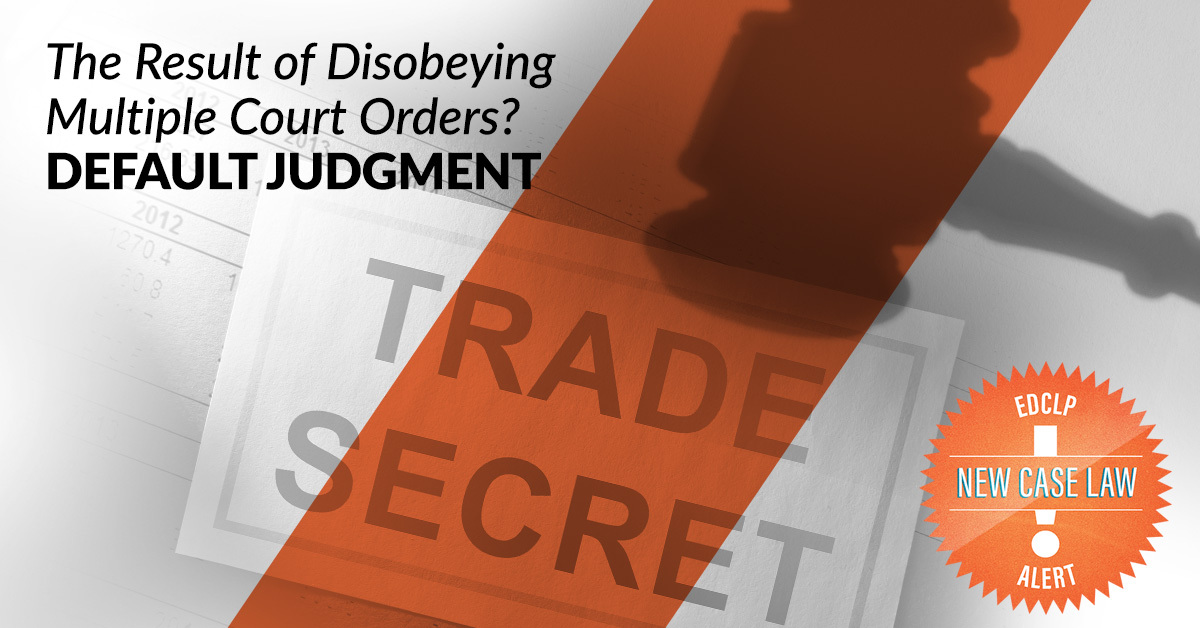E-Discovery
Case Law Alert: The Result of Disobeying Multiple Court Orders? Default Judgment
December 30, 2022

Red Wolf Energy Trading LLC v. Big Capital Management, LLC (D. Mass., Sept. 8, 2022) is a great example of how it’s nearly impossible for parties to hide relevant data from the court. In most cases, parties will get caught, with severe consequences ensuing.
Overview
In this case involving trade secrets, the plaintiff moved for sanctions against the defendants for failing to produce relevant Slack and Google documents even though multiple court orders required the production of this data.
The plaintiff claimed that the defendants tried to steal their software and code to start a competing business. During discovery, the plaintiff requested documents relevant to this issue; subsequently, the plaintiff claimed that the defendants did not produce all requested data, specifically from Google Suite and Slack data sources.
The judge grated the plaintiff’s motion to compel and required the defendants to review prior productions to determine if these productions were incomplete. After review, the defendants claimed that all relevant documents were produced.
But depositions of the defendants’ key custodians revealed that not all relevant Slack messages were included. Again, the defendants assured the court that they conducted a “good faith” search for these documents, and all were produced. Among other discovery errors and misrepresentations, eventually it became clear that 47 documents found on one of the key custodians’ computers weren’t originally produced.
Due to these misrepresentations and incomplete productions, the plaintiff filed a second motion for sanctions.
Ruling
- The Harshest E-Discovery Sanction Issued. The court issued a default judgment against the defendants, since the “Defendants’ repeated misconduct occurred despite two orders to review their document production.” Defendants misrepresented in affidavits their compliance with the orders, which hurt the “court’s ability to manage this case and others on its docket.”
- Message to Other Parties. The judge wanted to use this ruling to put other parties on notice, stating the court wanted “to send a message to other litigants that it is perilous to repeatedly disobey court orders.”

Expert Opinion from David Cohen, Esq., Chair – E-Discovery Group, Reed Smith LLP
This opinion is consistent with two e-discovery case trends of 2022: (1) the extension of discovery to newer data sources like Slack, and (2) the willingness of courts to impose sanctions for discovery violations. Here the Court relied on FRCP 37(b)(2), which authorizes sanctions, including default judgments, for failure to obey discovery orders.
Case Law Tip
Avoid crossing the line into behavior that will earn you e-discovery sanctions. Download the whitepaper Don’t Get Sanctioned! to learn about five litigants that earned sanctions and five that came close, but ultimately didn’t.
